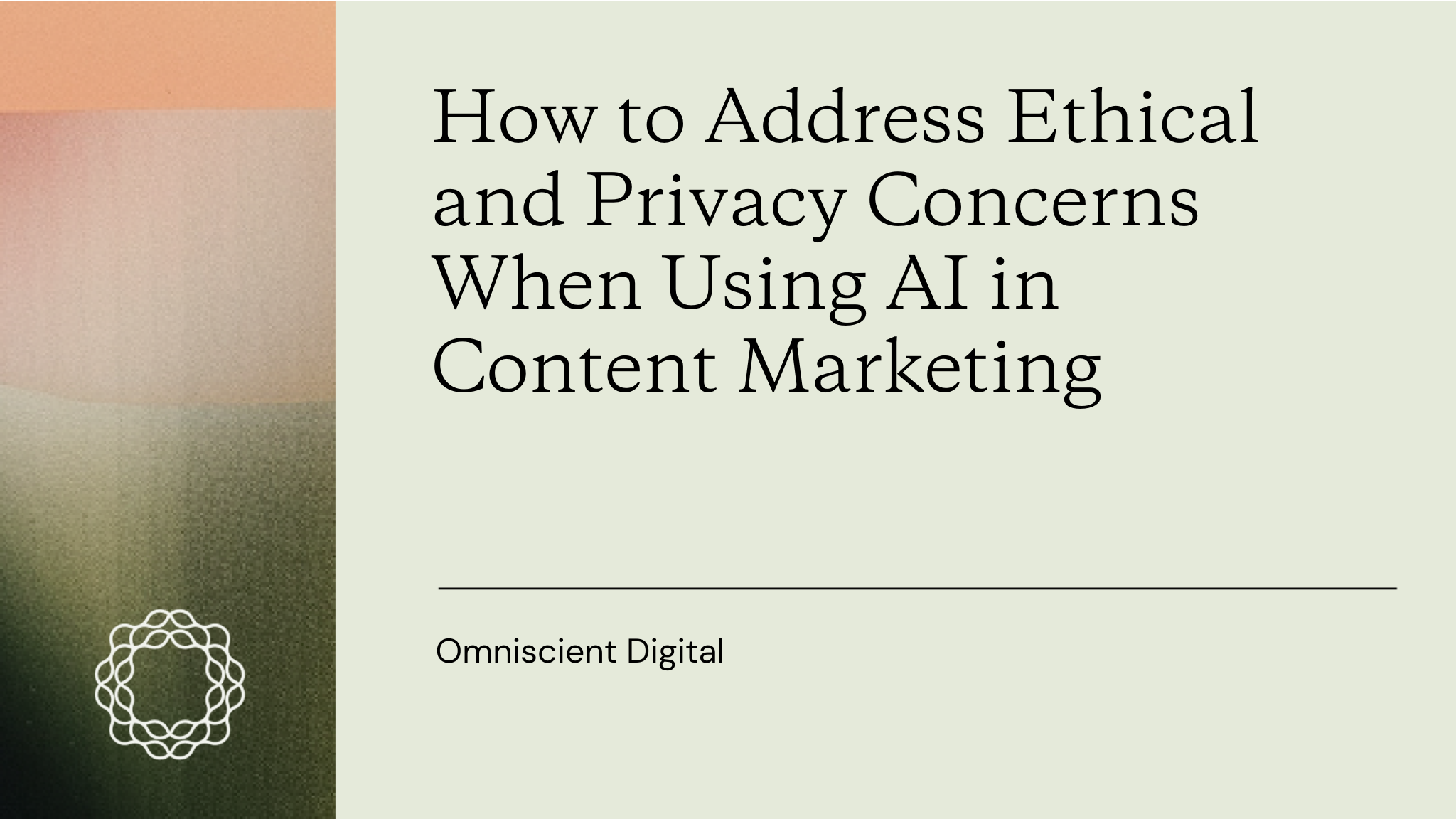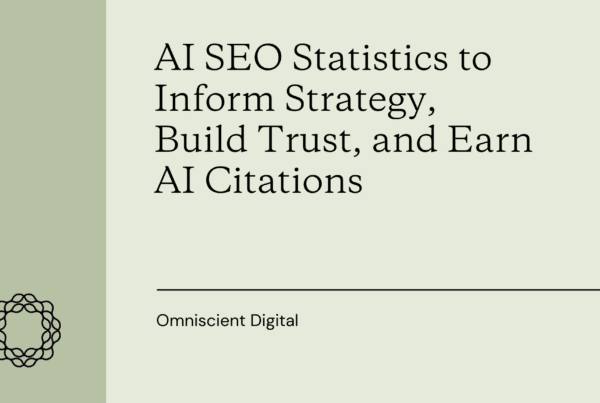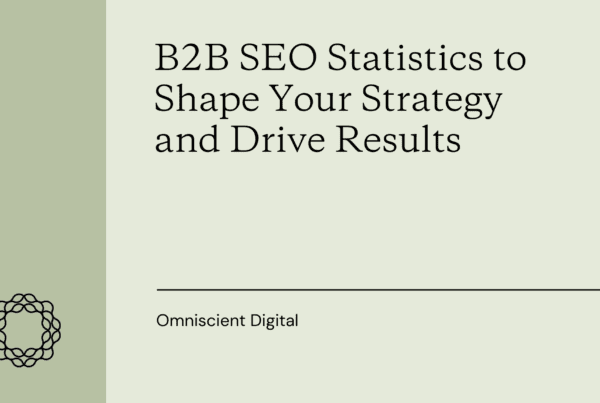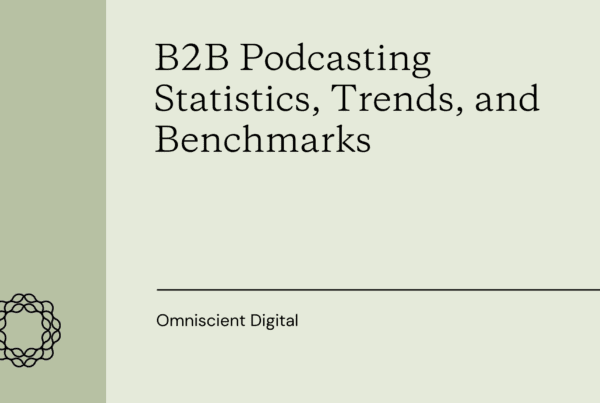
Welcome to the modern age of artificial intelligence (AI), the era in which machines dominate content marketing and provide immense efficiency and insight.
What could this mean for businesses? A groundbreaking innovation such as this comes with serious AI ethical issues, reminding us that “with great power comes greater responsibility.”
The truth is that AI risks creating biases or violating user privacy when processing massive data volumes. Companies must maintain ethical AI use and data protection to preserve client trust and conform to regulatory norms.
And as AI becomes a more integral aspect of content marketing, the issue is balancing innovation and ethical responsibility. This article will examine the AI ethical issues in content marketing and offer steps to address them.
How is AI used in content & marketing?
AI is reshaping how marketers approach content and marketing, reinventing several industry elements.
One way businesses apply AI in content marketing is through personalized product suggestions. Companies can tailor their marketing campaigns to each customer’s interests and preferences by using AI algorithms and prompts to assess user data.
With this technique, products and services can be made to fit the needs of each unique consumer. This elevates the customer experience and raises the chances of sales and conversions.
Likewise, producing content is another AI-powered marketing use. For instance, natural language processing is an example of AI technology that can generate written text. It can be used for blog posts, social media updates, and product descriptions.
Since AI is steering the content creation process, businesses save time and money while maintaining constant, high-quality work. Additionally, companies use AI to distribute content and automate marketing.
AI tools can recommend the best platforms and channels to publish posts based on your target audience’s behavior and preferences. This system can also schedule and plan content and distribute it automatically, ensuring the correct people see it at the right time and optimizing its impact.
By merging AI solutions into these areas, organizations can boost their marketing efforts, increase productivity, and provide a more satisfying customer experience.
What are the ethical concerns of using AI in content & marketing?
Recently, ethical concerns have risen around the use of AI in content marketing. Concerns about privacy, transparency, and accountability are at the forefront. Diving into these AI ethical issues examples sheds light on these concerns and how they affect the business world.
- Ownership and copyright: When marketers use AI-generated content containing copyrighted information, they risk violating the original producers’ exclusive rights. Furthermore, effective compliance management ensures that training AI systems with copyrighted photos, material, or text is done legally and responsibly.
- Information accuracy: Users should know that even cutting-edge generative AI, such as ChatGPT, has its limits. It uses a fixed dataset, which might not include new information. Also, it can pick up subtleties of natural language wrong because of gaps in the context, leading to mistakes.
- Transparency: Marketing agencies creating AI-based material are responsible for being transparent about their decisions and the results of algorithms. They have to explain the program’s decisions and accept responsibility for unintended consequences.
- Privacy concerns: There are still countless privacy concerns about the growing amount of data shared and created online. Organizations employ it to learn more about their audiences, sometimes without explicit permission. To protect your personal information, it’s advisable to get VPN, which can help safeguard your online activity from prying eyes.
- Bias issues: Training AI systems on biased or non-representative data can make them unintentionally include biases and unfair practices. As a result, content and marketing campaigns may lead to discrimination against different groups or people.
How to manage AI ethical issues within your organization
Addressing AI ethics becomes imperative as the market for AI in marketing is expected to increase from $15.84 billion in 2021 to $107.5 billion by 2028. This section guides you on handling the ethical issues of AI at work. It offers practical ideas and solutions for navigating the challenges of AI use.
AI ethics training
Educating employees and stakeholders on AI ethical concerns is crucial if companies want to tackle AI-related challenges. Providing tools and training will raise awareness of the potential problems posed by AI. Employees must appreciate the value of ethical AI use and know how to implement it in their work.
Additionally, data scientists, decision-makers, and developers must understand how crucial it is to incorporate ethical considerations into the development process. Creating a culture that values and stresses AI ethics is necessary for moral growth and the use of AI systems. Doing so guarantees businesses soundly implement AI.
Please remember that organizations shouldn’t rush AI deployment. Implementing the system entails a steep learning curve and continuous technological developments. Setting up workshops and internal training is critical to ensure everyone is on the same page.
These programs should educate all leaders, team members, and stakeholders about AI development and ethics.
Broaden data sources
To handle AI concerns in your company, you should employ a variety of data sources to train algorithms. Relying on information from a single demographic or perspective is insufficient to prevent discrimination and bias. Including a diverse spectrum of viewpoints ensures that the system generates accurate and inclusive data.
When planning generative AI implementation, businesses can fulfill this goal if they compile information from a broad range of sources, including people from various cultures, ages, sexual orientations, and geographic locations. This diversity in data gathering reinforces the fairness and comprehensiveness of its results. It’s a proactive move toward developing AI content that appeals to a larger audience.
Screen for bias
AI bias describes the systematic biases and projections made by AI models resulting in the unjust treatment of a particular group or people. This discrimination may originate from the algorithm’s design, the data used to train it, or how the system is implemented. Determining and resolving prejudices the tool may have to handle ethical challenges effectively is vital.
To avoid inequality, it’s paramount to regularly test the software for biases. This requires checking the algorithms in various settings and monitoring their decisions. If left unchecked, such tendencies may lead to the isolation of certain groups, lowering the return on investment of marketing efforts. It could favor one set of ideas over another.
Because of this, it’s crucial to put together a varied team of experts, including those with degrees in communication, to analyze and confirm AI-generated outcomes. This group is vital in spotting discriminating tendencies or prejudices. Organizations can make their system equal and fair by routinely checking for bias and discrimination. This enhances the general effectiveness and integrity of their AI applications.
Another way to check for bias and unconscious discrimination would be to use writing software such as Textmetrics. Software like this checks for gender bias, age bias, and cultural exclusion, but also for a fitting tone of voice and readability.
Build accountability and feedback loops
Creating a feedback loop and an accountability framework is valuable for handling AI challenges in companies. Businesses can obtain vital information by establishing channels for users and AI-impacted feedback. This input helps improve the system to continue to be practical and morally sound. At the same time, a trustworthy and open structure like this shows a dedication to responsibly using AI.
Furthermore, if a bias or ethical lap is discovered in the algorithms, management must hold it accountable. This entails clear standards and principles, audits, and strict penalties for violators. Assembling an ethics team comprised of legal consultants, technologists, and ethicists is a proactive move in this approach. This group can establish ground rules for ethical AI use and monitor compliance.
In addition, all members of the ethical team and other employees engaged in AI operations should have clear duties and obligations outlined by the group. Clearly stating values and goals for using the tool is critical. These will be the base of your company’s AI best practices and policies.
Establishing a feedback and accountability structure aids enterprises in swiftly detecting and resolving ethical issues, ensuring that AI applications are trustworthy. Efficient incident alerting plays a key role in this process, helping to quickly notify the right people when issues arise, ensuring timely resolution and minimizing potential disruptions.
Data quality oversight
To reduce ethical risks, it’s essential to guarantee the consistency and accuracy of data utilized in AI models. An inaccurate result may come from corrupted data. Thorough and routine audits are necessary to identify and correct inconsistencies or biases in the information.
These audits require a comprehensive review of data-gathering methods, as well as the detection and mitigation of biases through the use of preprocessing techniques. Updating algorithms is imperative to guarantee that they adhere to the most recent ethical regulations and norms. It’s crucial to check for flaws periodically and immediately act once discovered. This proactive strategy means that algorithms stay dependable, trustworthy, and ethical.
Additionally, it’s critical to have humans oversee the AI system operation. Ensuring that AI-generated content follows norms is a crucial human responsibility. This aspect is vital for detecting mistakes or biases that the algorithm could miss, adding an essential ethical precaution.
Ethics in AI: Shaping a Responsible Future
Businesses that are using AI solutions for content marketing development must address AI ethical issues surrounding the technology.
When dealing with ethical risks, a holistic approach is imperative. Best practices include human oversight in AI decision-making, varied data sourcing, and periodic reviews. Incorporating these safeguards into systems guarantees their integrity and precision, as well as the continued confidence of users.
If you need assistance navigating AI ethical concerns, Omniscient Digital is the leading partner for businesses striving to excel online. We will provide you with the expertise and skills you need to manage the challenge of ethical AI usage, allowing you to implement AI responsibly and successfully.
Conclusion
AI’s role in content marketing enhances efficiency and personalization, offering businesses powerful tools for engaging with customers. However, these advantages come with ethical challenges like privacy, bias, and transparency. Companies must address these issues by establishing strict ethical standards and training programs. Doing so ensures responsible AI use, preserves consumer trust, and maintains the integrity of their marketing campaigns. As AI technology evolves, embedding these practices will be crucial for sustainable success in content marketing.
Omniscient Digital is a leader in content marketing, ready to help your business thrive with ethical AI integration.



